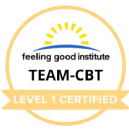The transition to parenthood is an exciting and daunting experience, but for some parents this transition can be more difficult than anticipated. Postpartum is a term used to describe the period immediately after childbirth, and can range from mild “baby blues” to more severe symptoms. In this article, we will explore what is postpartum depression, the risk factors, signs and symptoms, and what you can do to help yourself now.
Table of Contents
TogglePostpartum depression, also known as PPD, is a common condition that affects many women after giving birth. It was once a poorly understood disorder and many women suffered in silence. It is more than just feeling sad or stressed. It can be a debilitating condition that prevents women from enjoying life with their children.
It typically starts within the first few days after giving birth and can last for up to a year and it is said that 1 in 7 women experience postpartum depression.
Postpartum depression can affect both men and women but is more common in women. PPD can be caused by many different factors including hormones, genetics, social and cultural factors, life stressors before pregnancy and/or during pregnancy and perinatal mood disorders.
It can be a debilitating illness, and it can happen to any woman, regardless of her age or background. A new mother’s life is often filled with joy and excitement. But for many women, the first few weeks after birth can be a time of confusion and uncertainty.

Now let’s dive into some of the most common myths about postpartum depression. There are myths about what it takes to be a ‘good’ mother and what a mother should think, feel and act.
But when new mothers suffer from depression and/or anxiety, those myths can be overwhelming and harmful as they can make new mothers feel inadequate and think they are not ‘cut out’ for this new role.
Dr. Ariel Dalfen, M.D., author of When Baby Brings the Blues: Solutions for Postpartum Depression brought up the following few myths that keep women from seeking the help they need.
1. “It’s normal to feel this bad after giving birth.”
Motherhood is assumed to be difficult, bringing in sleepless nights, exhaustion, ‘baby brain’ (i.e., memory problems, diminished concentration, absent-mindedness), and feeling discouraged.
But where do we draw the line between a typical adjustment to a new role and postpartum depression?
It can be difficult to distinguish symptoms of depression from ‘baby blues’ and postpartum depression as many of them are similar to those that every new mother will experience.
But being a new mother should not leave you feeling unable to relax and having trouble switching off your troubled negative thoughts. It should not leave you filled with regret, guilt or remorse for so long. It should not leave you feeling unhappy, feeling miserable and uncomfortable.
Although the early stages of motherhood might be challenging, they should not be terrible and debilitating.
2. “My baby will be taken away if anyone finds out how bad I’m feeling.”
It takes considerable strength and bravery to ask for assistance. This is a very good thing if you are a new mother and are aware that you need help. It demonstrates that you are aware of your troubles and are seeking ways to improve it.
Having a difficult time as a new mother does not mean that you are a bad or unsafe mother. But reaching out proves quite the opposite!
3. “A good mother would not feel this badly. I’m not meant to be one. I am a bad mother.”
Even in the best circumstances, being a new mother requires a lot of work. However, you should not automatically assume that you should not be a mother if you don’t adjust to the role right away. Being a mother is a very hard job and feeling depressed and anxious would not make you a bad mother.
Depression is a real condition. Consider how absurd it would sound if someone with back pain after giving birth would assume that the back problems proves that she should not be a mother.
Unfortunately, depression has an impact on how we perceive ourselves, impairing our ability to make good decisions, making it easier for new mothers to believe that they should have never embarked on this journey in the first place.
But what are the risks, signs and symptoms? Knowing the risks and signs can help new mothers differentiate between the severity of how they’re feeling and what strategies they can use to make themselves feel better.
The risk factors are not always straightforward but research studies suggest that there are several factors that can put a female at risk. If you are currently pregnant or you just had a baby, you need to know about the risk factors.
The best way to describe postpartum depression is through the so-called bio-psycho-social model. This model accounts for unique biological risk factors (i.e., genetics, physical characteristics, etc.), psychological and social stressors.
Some of the risk factors are:
- Hormonal factors → A woman is more susceptible to mood swings due to hormonal changes brought on by pregnancy and childbirth.
- Biological factors → pre-existing depression before or during pregnancy, family history of depression.
- Psychological factors → personality traits (i.e., negative thinking styles), body image issues, history of abuse or parental conflict.
- Social factors → difficult life circumstances before, during or after pregnancy, disappointment over the baby’s gender, lack of support, financial constraints, pregnancy after in-vitro fertilization and/or breastfeeding difficulties.
Now that you know what the risk factors are, let’s look at the specific signs and symptoms of PPD.
Of all new mothers, 50% to 75% will experience bad days. These new mothers frequently describe feeling brittle, apprehensive, experiencing moderate mood swings, or having quick-tempered or sensitive reactions. All of those signs and symptoms are collectively known as the ‘baby blues’.
Symptoms of postpartum depression include:
Psychological symptoms:
- Depressed moods
- Excessive worrying
- Feelings of guilt or inadequacy – blaming oneself
- Disinterest in previously enjoyable activities, including sex
- Scary thoughts
- Suicidal thoughts
- Preoccupation with the baby’s health and well-being
- Fearful of being a bad or inadequate mother
- Crying a lot more frequent than before and for long periods of time
- Anger outbursts, feeling irritable and agitated
- Feeling impatient
- Attention and concentration difficulties

Physical symptoms
- Sleep disturbances – sleeping too much, or too little, difficulty falling asleep
- Changes in appetite and weight
- Low energy and fatigue
It is natural for hope to waver now and then, especially when managing infertility stress or when you feel like giving up on getting pregnant. But staying stuck in a rut of despair can make the journey feel even longer. Think of it like getting caught in the rain without an umbrella; the longer we stand there, the wetter we get. When hope slips away, it is tempting to focus only on the setbacks and what we’ve lost.
Adopting a hopeful mindset, especially during infertility treatments, is both possible and essential. Start by arming yourself with knowledge. Understand that treatments are a process, and it’s common for them not to work on the first try.
Knowing what to expect, we can better prepare ourselves emotionally and mentally, allowing hope to find its way back, even after the most challenging days.
What Can You Do To Help Yourself at Home?
There are various coping strategies that you can learn and start using right now. Some of those techniques are:
- Talking about your feelings with your partner, family or friends.
- Writing down your thoughts and feelings in a journal or notebook.
- Doing something that you enjoy – reading a book, watching TV, etc.
- Getting out of the house every day, even if it’s just for a short walk around the block.
When to Seek Help for Postpartum Depression?
Distinguishing between mild symptoms and those more severe in nature can guide new or future mothers to determine when to seek professional help.
Mild Symptoms:
- Several days of sadness
- Worrying occasionally but the thoughts are not persistent, they come and go
- Negative feelings that fluctuate
- Poor sleep due to caring for the baby
- Fatigue
- Typical appetite fluctuations, such as appetite increasing when breastfeeding
- Some forgetfulness
- Feeling the need to take a break from the motherly responsibilities
- Limiting visitors
- Occasional irritability and anger
Serious symptoms to watch out for:
- Feeling very sad and anxious for more than two weeks
- Persistent anxiety
- Negative feelings that outweigh the positive feelings
- Thoughts about harming yourself or your baby
- Difficulties sleeping at night time or difficulties getting out of bed
- Fatigue/ extreme exhaustion
- Compulsive overeating or significant loss of appetite
- Inability to concentrate and focus on any tasks
- Avoiding your baby
- Social withdrawal and constant isolation
- Feelings of intense anger and irritability
Having a baby can be an emotional rollercoaster ride. Often, new moms are unaware of the normal changes in their mood and emotions. You should know the risk factors, signs and symptoms that many women experience after childbirth and postpartum depression (PPD).

Delia Petrescu
Founder & Director
BA, MA, Registered Psychotherapist (RP)
Delia Petrescu, MA, RP is a Toronto-based psychotherapist, psychometrist, and the founder of Get Reconnected Psychotherapy and Counselling Services. She provides virtual therapy sessions Ontario-wide. Delia has experience working with adults struggling with adjustment difficulties, depression, anxiety, and trauma. She specializes in integrative and holistic care for those coping with life crises such as fertility concerns. Read more about Delia

A Glimpse into Postpartum Depression with Clarity and Understanding
Learn about postpartum depression, its symptoms, misconceptions, and the importance of seeking help.




